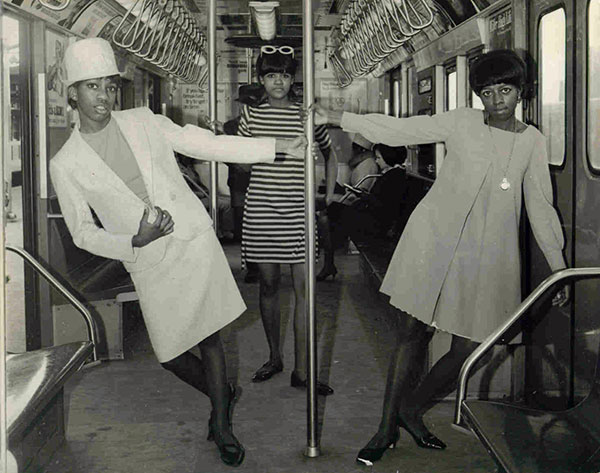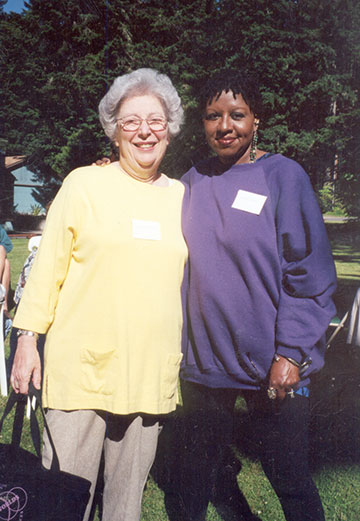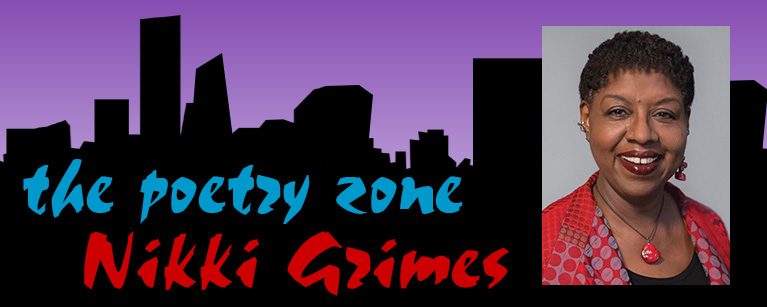Historically Speaking
I was born on October 20, 1950, to Bernice and James Grimes. As befits a poet of African-American descent, I was born in Harlem, home of the Harlem Renaissance. When I was 13, I would give my first public poetry reading at the Countee Cullen Library, one block away from Harlem Hospital, where I came into the world.
My family was troubled before I was added to it, and for the first five years of my life, my parents separated and reunited countless times before their final split. During this time, my older sister, Carol, and I were bounced around from one relative to another, one foster home to another, just like the lead character in Jazmin’s Notebook.
At 5–1/2, my sister and I were separated. She was sent to one home, and I was sent to another. (Is it any wonder I write about foster homes in books like Hopscotch Love, Road to Paris, and A Dime a Dozen?) Though many of the foster homes were horrendous, the last home in Ossining, in upstate New York, was a refuge where I enjoyed security and a sense of permanence for the first time in my life. It was a place where I knew I was loved.
My foster parents had two children of their own, two boys who I became very close to, and I still keep in touch with Kendall, the older of the two. It was while living in Ossining that I first began to write.
After penning my first poem, there was no turning back!
At age ten, my mother remarried and invited my sister and me to come back “home.” I loved my foster family, but I thought it was important that I get to know my birth-mother, so I accepted her invitation. I moved back to the city. Sadly, my sister didn’t stay with us for very long.
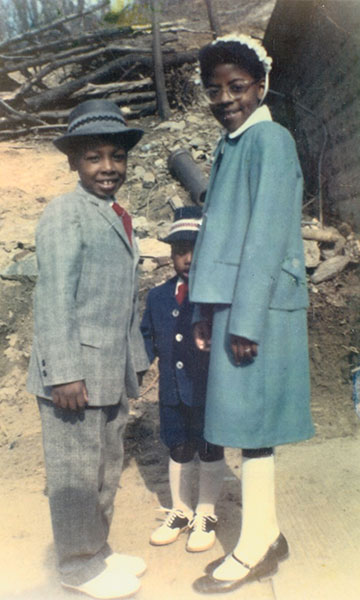
The rest of my childhood was spent in New York City. What schools did I attend? That’s an impossible question for me because I was moved around so often. I spent a few years in Brooklyn, in some of the meanest streets where gang fights were as regular as rain. Some days, I wondered if I would survive. In fact, I never imagined that I’d get to be as old as I am! I’d talk my way out of a fight whenever I could, but when I couldn’t I learned to defend myself. I still have scars to remind me of that time. I am not proud of those scars, only grateful that I lived to tell the story. So far, none of my characters have been through half of what I have.
I don’t remember the names of the schools I attended in Brooklyn, but I do remember Stitt Junior High School in Washington Heights. Those years were rough, but I read and wrote my way through them. In fact, when I graduated, I won my first writing award. It was a copper medal shaped like an old-fashioned ink bottle with a feather pen sticking out of it. Years later, author and illustrator Julie Mammano painted a logo for me featuring that very design. I also remember that graduation for another reason. It was one of the two times I’d ever seen my father in a matching suit jacket! He always wore sport coats and leather loafers, like the dads in many of my books.
When I wasn’t reading or writing, I was running, swimming, or playing basketball. Today, my only involvement with sports is as a spectator. I love ice skating and gymnastics. However, as a girl, I was quite the tomboy—until it came to football. The first time I was tackled, that was it. I was done. I am not into pain! I decided to leave football to the boys. Besides, in junior high, I was suddenly less interested in being “one of the guys,” and more interested in being with one of the guys.
After graduating, my mother moved us to the Bronx and I started attending William Howard Taft High School, the setting for Bronx Masquerade. It was the ’60s and I got caught up in grassroots organizing, sit-ins, and political demonstrations.
Besides all the turmoil the country was in following the assassination of JFK and Martin Luther King, Jr., my father — my best friend in all the world — died. My personal world was upside down. I was so hurt, angry, and stressed out, I thought I would explode.
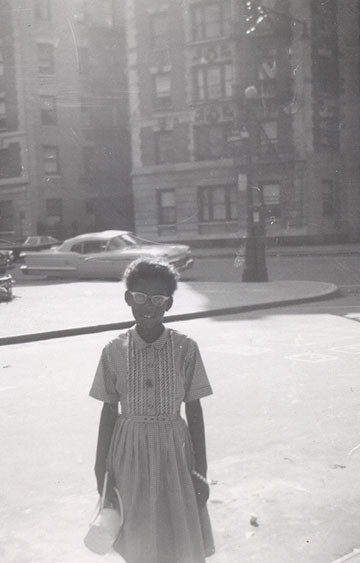
Thank God for Mrs. Wexler.
Mrs. Wexler was one of my high school English teachers as well as guidance counselor. A Holocaust survivor, Mrs. Wexler impressed upon me the importance of focusing on the future. “This, too, shall pass,” she’d say of the chaos that was my life. And because of her own history, I believed her. She encouraged me to focus my energies on that which I could control—my studies, and my preparations for college and the life I wanted for myself.
Her advice rang true. Hadn’t I always channeled my energies towards school? Somewhere along the way, I had begun to drift off course. Now, with her help, I got back on track. I never lost sight of it again.
The second most important person in my high school years was the author, James Baldwin (Another Country, If Beale Street Could Talk, The Devil Finds Work). I met him in my junior year and was blessed to have him as a mentor until his return to France a year-and-a-half later.
Baldwin was the single most important influence in my literary life. From him, I learned many things. To honor my talent, my gift. To write with honesty, integrity, and a sense of responsibility toward my audience. Most of all, he encouraged me to master the tools of my craft, to expand my knowledge of language, to enhance my fluency in my mother tongue. I loved his work. He may not have been a poet, but his language was among the richest I have ever read. It’s no accident that he was one of the most honored authors of the last century. I will forever be in his debt.
All through school, I wrote poems and stories. And I read. Ravenously. Everything. Mysteries, myths and legends, biographies, science fiction, historical novels, short stories, and, of course, poetry. I dreamed of one day having my own books on the library shelf!
A Dime a Dozen
My mother was anything but supportive. Whenever I talked about wanting to be a writer when I grew up, she would say, “writers are a dime a dozen!” Hence, the title of my autobiographical collection of poems, A Dime a Dozen. I was one of those people who pursued my art in spite of my mother, not because of her. Of course, times have changed. Today, she is very proud of what I do. Go figure!
My father, a violinist and composer, was just the opposite. He encouraged my artistic pursuits in every way. He gave me my cultural education, took me to my first ballet, my first art exhibit, introduced me to my first author, got me my first signed book, and so on. In fact, he was forever giving me books. During my teens, at gift-giving time, no matter what else he had for me, I could always look forward to a new book. There’s no question but that my father helped to shape the artist that I am today. I even tried playing the violin for awhile, just like him!
People frequently ask when I began publishing my work. The answer? In high school. I published poems in the school literary journals, then in other literary journals and magazines.
I finished high school in the Bronx, but my school career was spread out over four of the five boroughs of New York City, and four years upstate in Ossining. The inner city is, therefore, the backdrop against which I most often write. The city street is the territory I know best.
